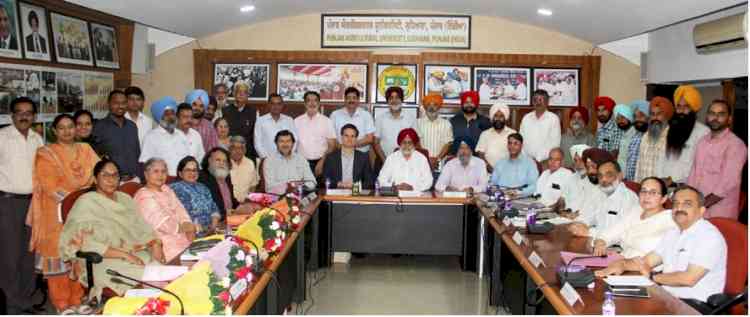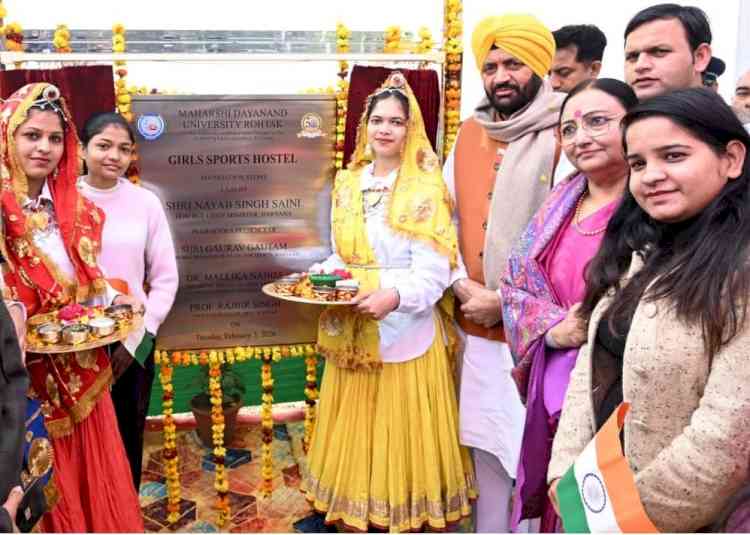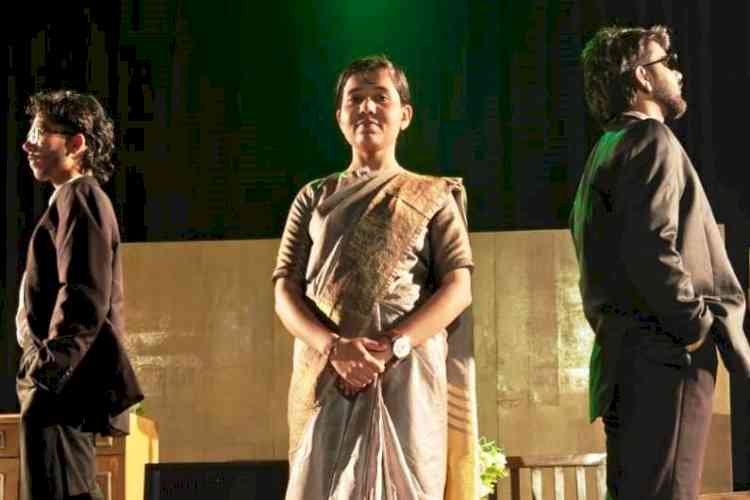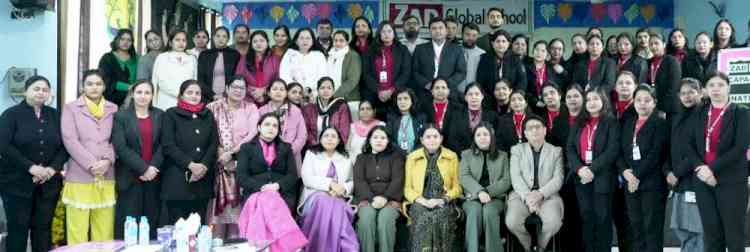WORLD BANK AND ISARC EXPERTS VISIT PAU TO FOSTER AGRICULTURAL ADVANCEMENTS
A delegation of distinguished experts from the World Bank and the IRRI South Asia Regional Centre (ISARC), Varanasi, convened at Punjab Agricultural University (PAU), Ludhiana, for a comprehensive review of the National Agricultural Higher Education Project (NAHEP) and to explore avenues for future research collaborations. Under the leadership of Dr. Oliver Braedt, World Bank Regional Manager for Agriculture and Food, this visit marked a significant milestone in advancing agricultural innovation.

Ludhiana, September 13, 2023: A delegation of distinguished experts from the World Bank and the IRRI South Asia Regional Centre (ISARC), Varanasi, convened at Punjab Agricultural University (PAU), Ludhiana, for a comprehensive review of the National Agricultural Higher Education Project (NAHEP) and to explore avenues for future research collaborations. Under the leadership of Dr. Oliver Braedt, World Bank Regional Manager for Agriculture and Food, this visit marked a significant milestone in advancing agricultural innovation.
In addition to Dr. Oliver Braedt, the World Bank and ISARC team included experts such as Dr. Arvind Jhamb, Consultant, World Bank; Bekzod Shamsiev, Senior Agriculture Economist, World Bank; Dr. Anupam Joshi, Senior Environmental Specialist; Surbhi Dhingra Singh, Senior Social Specialist; Dr. Sudhanshu Singh, Director, ISARC, Varanasi (IRRI Centre); Dr. Vikram Patil, Scientist, Agricultural Economics; and Dr. Proloy Deb, Post Doctoral Fellow, Water Management. Special invitees to the event were Dr. D K Benbi, Former National Professor, and Dr. Rajesh Vashisht, Former Director of Agriculture, Punjab.
The meeting, held under the chairmanship of Dr. Satbir Singh Gosal, Vice-Chancellor of PAU, saw active participation from university officers and faculty members.
Dr. Oliver Braedt, in his opening remarks, underscored the critical importance of collaborative efforts in advancing agriculture and ensuring food security. He commended PAU for its pivotal role in earning Punjab the title of the 'Breadbasket of India' and stressed the potential for transformative agriculture in India to have a global impact. Dr. Braedt identified key challenges, including paddy residue burning and underground water depletion, and expressed interest in exploring carbon markets to benefit farmers.
Dr. S.S. Gosal provided an in-depth overview of PAU's current standing and its significant contributions to improving the lives of farmers. He highlighted the university's role as the progenitor of the Green Revolution and its leadership in conservation agriculture, apiculture, and farm mechanization. Dr. Gosal emphasized PAU's commitment to ensuring not only food security but also nutritional security through innovative technologies and climate-resilient approaches. He proudly announced PAU's top ranking among all 63 state agricultural universities in the NIRF 2023 rankings.
Addressing emerging concerns in Punjab's agriculture, Dr. Gosal highlighted issues like heat stress, erratic rains due to climate change, and the appearance of new pathogens. PAU is dedicated to addressing these challenges through climate-resilient technologies, genome editing, biofortification, trait-specific crop development, and sustainability efforts, he added.
Dr. Ajmer Singh Dhatt, PAU's Director of Research, provided an overview of the university's initiatives in sustainable agriculture. He detailed efforts in water-saving technologies, short-duration varieties, genomic-assisted breeding, crop residue management, integrated nutrient management, biofertilizers, integrated pest management, post-harvest handling, and specialty varieties. Dr. Dhatt also highlighted the utilization of advanced technologies like genome editing, micropropagation, genetically modified (GM) crops, and nano-fertilizers.
Bekzod Shamsiev discussed the financial aspects of the NAHEP project, while Dr. Arvind Jhamb delved into commercial aspects of agriculture, particularly seed production. Dr. Jhamb emphasized the importance of upskilling agricultural machinery operators and optimizing agricultural practices.
Dr. Rajesh Vashisht expressed concerns about the groundwater crisis in the state, urging the development of better resource conservation technologies and weather forecasting systems. Dr. D.K. Benbi highlighted the need for methane emission data from rice cultivation and explored the potential benefits of carbon credits for farmers. Dr. Sudhanshu Singh deliberated on Direct Seeded Rice and carbon incentives for farmers.
The World Bank-funded ICAR CAAST-NAHEP project, "School of Natural Resource Management for Sustainable Agriculture" at PAU, presented its progress report and key achievements. Dr. O.P. Chaudhary, the Principal Investigator, highlighted project activities, including rice straw management, irrigation management for mitigating global warming potential, study of root architecture, estimation of soil-water balance, and precision technologies in natural resource management.
The discussions covered a wide range of topics, including sustainable practices, carbon management, irrigation water quantification, solar pump utilization, and micronutrient analysis. Dr. Vishal Bector, Associate Director (Institution Relations), facilitated these discussions.
The experts from the World Bank and ISARC were honoured with PAU publications and university mementos, marking the successful collaboration and knowledge exchange during this momentous visit.



 City Air News
City Air News 










